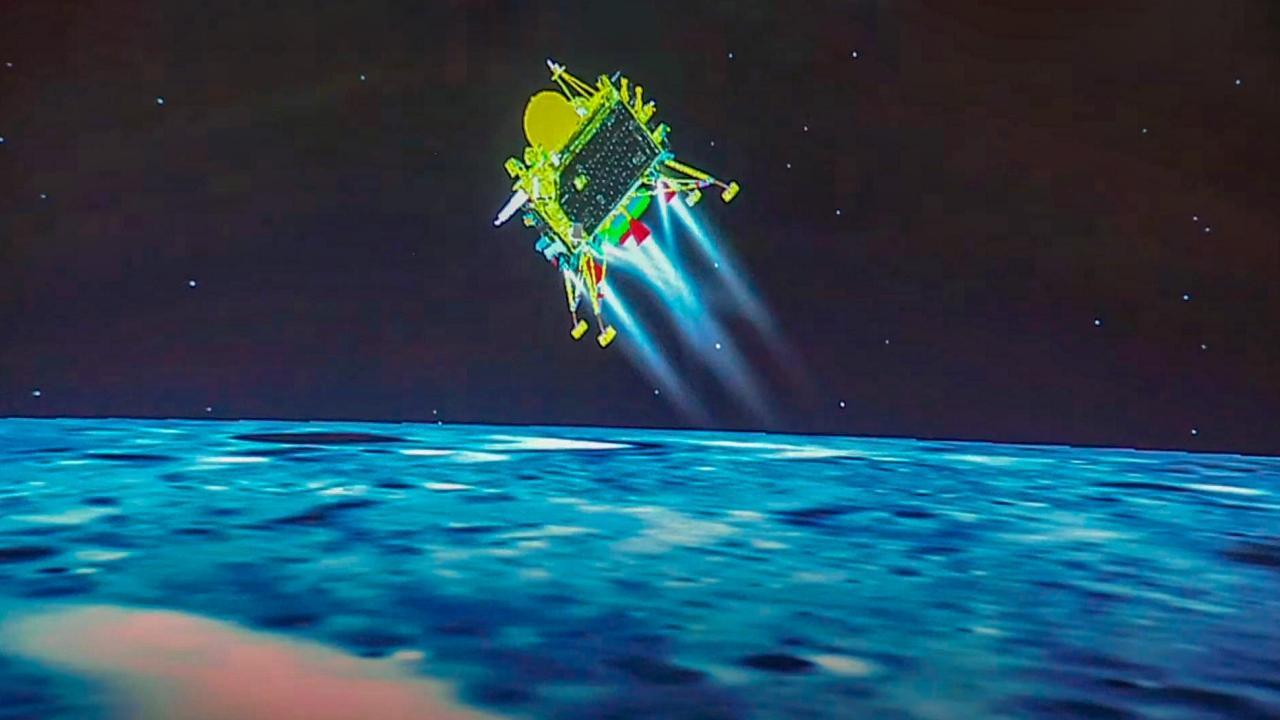According to ISRO, Chandra's Surface Thermophysical Experiment (ChaSTE) measured the temperature profile of the lunar topsoil around the south pole

File Pic/ISRo/X
ISRO on Sunday released a graph of the temperature variation on lunar surface with increase in depth measured by the ChaSTE payload onboard Chandrayaan-3's Vikram lander module.
ADVERTISEMENT
According to the space agency, Chandra's Surface Thermophysical Experiment (ChaSTE) measured the temperature profile of the lunar topsoil around the south pole, to understand the thermal behaviour of the Moon's surface.
"Here are the first observations from the ChaSTE payload onboard Vikram Lander. ChaSTE measures the temperature profile of the lunar topsoil around the pole, to understand the thermal behaviour of the moon's surface," ISRO said in an update on 'X', formerly Twitter.
Chandrayaan-3 Mission:
— ISRO (@isro) August 27, 2023
Here are the first observations from the ChaSTE payload onboard Vikram Lander.
ChaSTE (Chandra's Surface Thermophysical Experiment) measures the temperature profile of the lunar topsoil around the pole, to understand the thermal behaviour of the moon's… pic.twitter.com/VZ1cjWHTnd
The payload has a temperature probe equipped with a controlled penetration mechanism capable of reaching a depth of 10 cm beneath the surface.
The probe is fitted with 10 individual temperature sensors. The presented graph illustrates the temperature variations of the lunar surface/near-surface at various depths, as recorded during the probe's penetration. This is the first such profile for the lunar south pole. Detailed observations are underway, it said.
The payload was developed by a team led by the Space Physics Laboratory (SPL) of ISRO's Vikram Sarabhai Space Centre (VSSC) in collaboration with Physical Research Laboratory (PRL), Ahmedabad.
India on Wednesday scripted history as ISRO's ambitious third Moon mission Chandrayaan-3's Lander Module (LM) touched down on the lunar surface, making it only the fourth country to accomplish the feat, and first to reach the uncharted south pole of Earth's only natural satellite.
 Subscribe today by clicking the link and stay updated with the latest news!" Click here!
Subscribe today by clicking the link and stay updated with the latest news!" Click here!







